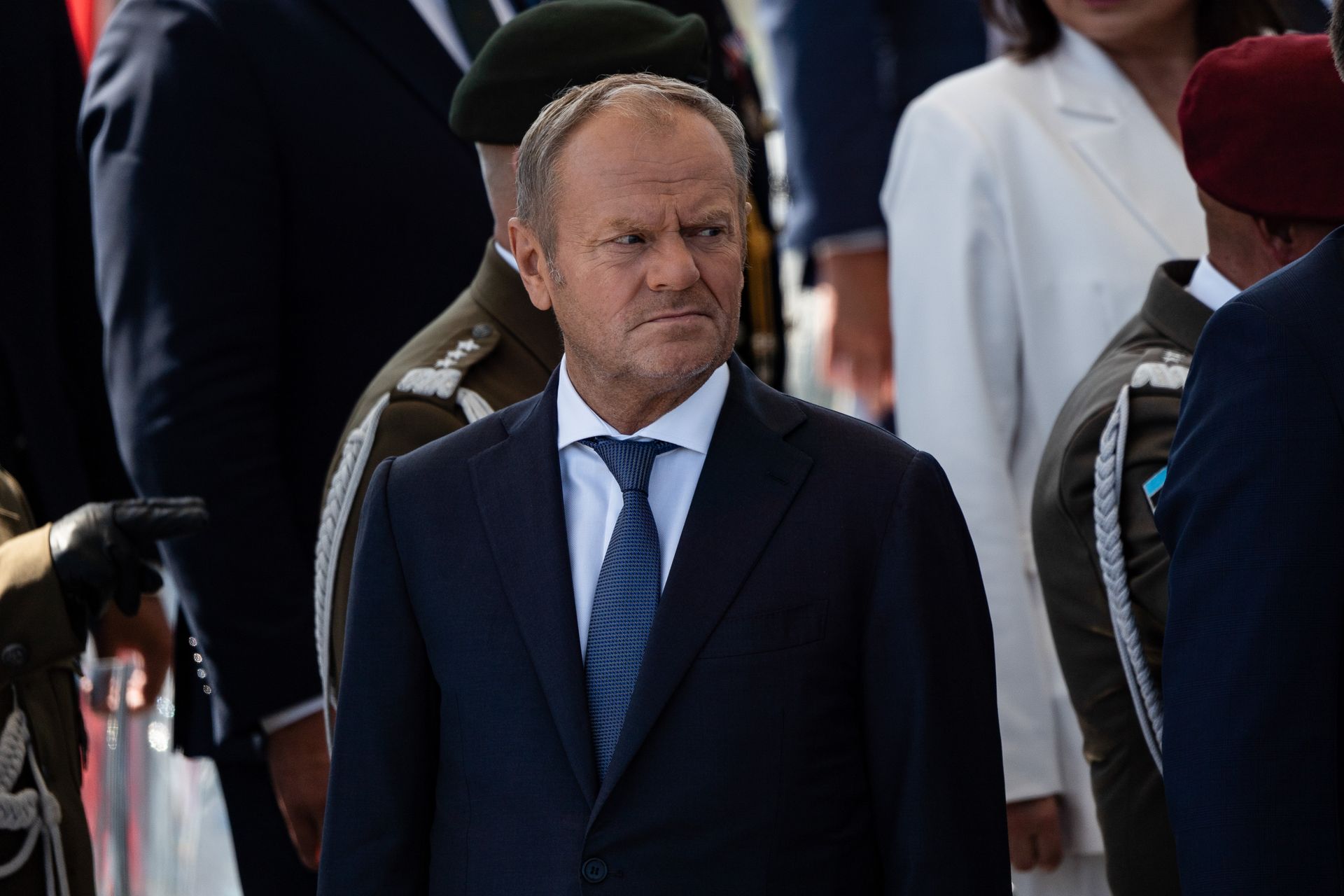In largest drone breach into NATO territory, Russia appears to be probing Polish resolve

Soldiers of Poland’s Territorial Defence Force attend the opening of the military complex of the 114th Light Infantry Battalion in Limanowa, Poland, on March 29, 2025. (Dominika Zarzycka/SOPA Images/LightRocket via Getty Images)
Nineteen Russian drones were recorded crossing into Poland on Sept. 10, in what became the largest attack on a NATO member state since the start of Moscow's all-out war against Ukraine.
Polish Prime Minister Donald Tusk said that his country's air force, together with NATO allies, has downed at least three of the incoming drones.
Russian attack drones have repeatedly violated NATO airspace since 2022, targeting Lithuania, Poland, and Romania. Until now, however, there had never been a confirmed instance of NATO defenses shooting them down.
This time, the scale of the incursion was notably larger.
"It's just about testing Poland's reaction and how it responds to such an incursion," Michal Lebduska, an analyst at the Association for International Affairs (AMO), told the Kyiv Independent.
Following the attack, the Polish authorities discovered debris from 16 drones and one projectile fragment of unknown origin within the country.
"Perhaps the idea is why specifically Poland, because Polish society and the political scene are very polarized," Lebduska said.
Poland's recent presidential election, which brought right-wing nationalist Karol Nawrocki to power, has underscored the nation's growing social and political divisions. It has also strained relations with Kyiv, despite Poland being one of Ukraine's key allies since the start of Russia's full-scale invasion.

"This is simply something that could add fuel to those conflicts (in Poland)," Lebduska added.
International affairs expert Stanislav Zhelikhovskyi shares the same view. He says that the question of aid to Ukraine has been quite contentious over the past year, and the recent attack can further decrease domestic support for Kyiv and its struggle.
"This is also a way for Russia to achieve its goals," he said.
Amid growing Western concern, the Russian Defense Ministry issued a statement saying Moscow had "not planned to hit" any targets in Poland. Andrei Ordash, Moscow's charge d'affaires, also rejected accusations that the drones shot down in Polish airspace overnight were of Russian origin.
According to Zhelikhovskyi, Russia may have used the recent attack to try to "intimidate" NATO. He believes this could be part of a broader strategy to pressure Western partners into shifting their stance on Ukraine and push Kyiv toward accepting the demands of Russian President Vladimir Putin.
"When there is no reaction, it ultimately leads to greater escalation."
While Ukrainian officials claimed that Russia had intentionally targeted Poland with drones, the Polish ones remain cautious.
Robert Czulda, a security expert and professor at the University of Lodz, says it is impossible to determine whether the attack was deliberate.
"If the goal was to test Poland, then Poland passed the test — the objects were detected, and international forces intercepted the drones," he told the Kyiv Independent.
The experts the Kyiv Independent spoke with believe that, in light of the recent incursion, Poland should invest in air-defense capabilities and work to build an effective system for detecting, identifying, and neutralizing these kinds of threats.
Yet, as Czulda pointed out, no system can provide 100% protection.
President Volodymyr Zelensky said Ukraine is prepared to go beyond intelligence sharing and alerts, calling for "real joint action in the skies to ensure the safety of our neighbors."
The incursion occurred just days ahead of the scheduled start of the Russian-Belarusian Zapad 2025 military exercises. Poland has raised concerns over the upcoming drills set to begin on Sept. 12 and announced plans to close its borders with Belarus for their duration.

Two of the drones crossed into Poland on Sept. 10 from Belarus.
Zhelikhovskyi didn't rule out that during the exercises, the two allied countries could try a larger attack on Poland or the Baltic states to test NATO's reaction.
The latest attack showed that NATO does not fully understand how to assess modern attacks, including those of a hybrid nature, according to Zhelikhovskyi.
"NATO, as an organization, is not ready to go to war, not ready to take direct action against Russia. And Russia is also testing how well NATO is keeping up with the times," he said.
According to Lebduska, Russia is likely to continue such provocations despite Warsaw's "real response" this time.
"What we can see is that when there is no reaction, it ultimately leads to greater escalation," the expert said.
"This is the kind of situation where they can try to normalize such actions. No one would have even considered something like this a few years ago. And if, in a week, there are 30 drones, it might be interpreted as 'more normal' than this first incident."














